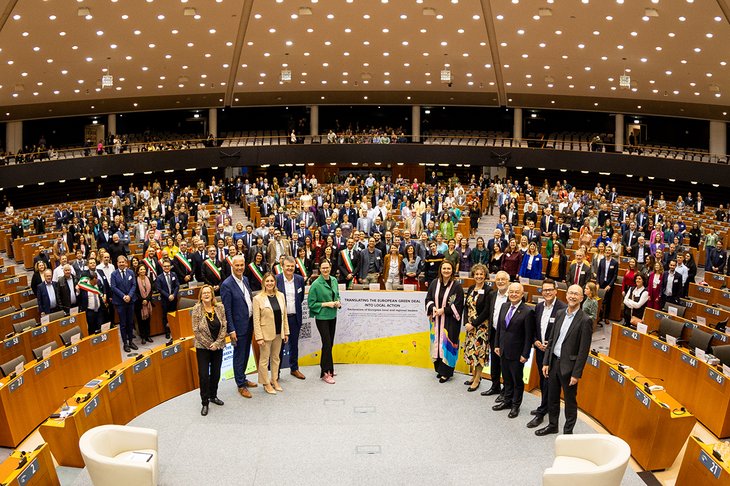European Mayors show how climate change must be tackled with proximity policies
Article

DR
More than 220 Euopean mayors and representatives met last week in the European Parliament to reinforce to Europe the idea that climate change must be tackled 'from the bottom up', with local and proximity policies as the starting point for a global strategy. Among the leaders was the Deputy Mayor of Porto, Filipe Araújo, who is responsible for the Environment and Climate Transition.
As part of the 'Translating The EU Green Deal Into Local Action' initiative, the Deputy-Minister-President of Flanders said that 'many European reports and objectives have been specified, but the real protagonists of climate change are on the other side of the chain. Because they don't ramble on in abstract terms, but instead bring practices closer to people'.
'We have to acknowledge their power and their importance', said Gwendolyn Rutten, who is taking over the Belgian presidency of the European Union (EU) and brought to the Chamber the example of the Local Energy and Climate Pact undertaken by Flanders, a mission that is in every way similar to the Porto Climate Pact, in particular by calling on local organisations to take on their fundamental role in concrete actions in the climate transition context.
For the Belgian representative, 'tackling the global climate challenge starts locally, across Europe. Not by individual leaders, but by the masses'. 'The real power of this Pact lies in its tangible measures, rather than abstract and vague ambitions, so that every citizen can contribute and make a difference', says Gwendolyn Rutten.
Local leaders present recommendations to the European Council for greater empowerment
We should recall that, with the 'Fit For 55' programme, the European Union is aiming for a 55% reduction in emissions by 2030.
And the European Mayors agreed that they can make a difference through an unprecedented mobilisation of all local partners: by analysing and intensifying mutually reinforcing partnerships between local governments, regions and European initiatives; and matching ambitions with regulations and investment plans.
In a joint statement, they emphasise the need for direct financial support from the EU to local authorities for the implementation of concrete climate measures, and suggest the creation of a working group between the European Commission and the Committee of the Regions to serve as a central platform for the coordination of European instruments, providing guidance and aligning policies with local and regional capacities and needs.
Local and regional leaders will present their ten recommendations for empowering local and regional governments to the European Council, in order to ensure that the European Green Deal is successfully implemented.